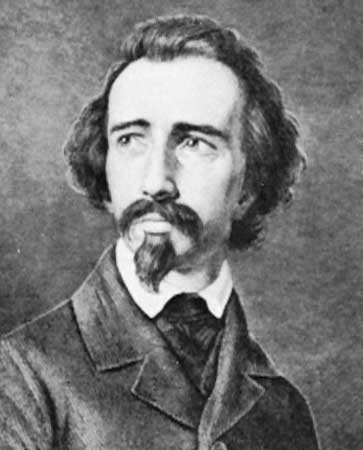Geibel, Emanuel
German poet
in full Franz Emanuel August Geibel
born Oct. 17, 1815, Lübeck 【Germany】
died April 6, 1884, Lübeck, Ger.
 German poet who was the centre of a circle of literary figures drawn together in Munich by Maximilian II of Bavaria. This group belonged to the Gesellschaft der Krokodile (“Society of the Crocodiles”), a literary society that cultivated traditional poetic themes and forms.
German poet who was the centre of a circle of literary figures drawn together in Munich by Maximilian II of Bavaria. This group belonged to the Gesellschaft der Krokodile (“Society of the Crocodiles”), a literary society that cultivated traditional poetic themes and forms.After completing his university studies at Bonn and Berlin, Geibel devoted himself to travel and became, in 1838, tutor to the Russian ambassador in Athens. In 1840 his extremely successful Gedichte (“Poems”) appeared. It ran to 100 editions in his lifetime and earned him a pension from the king of Prussia, Frederick William IV. Returning to Lübeck, he taught at the Gymnasium until 1852, when Maximilian called him to Munich as an honorary professor of German literature and aesthetics. In 1868 he was dismissed by Maximilian's successor because of his support of Prussian hegemony; King William (Wilhelm) I of Prussia responded by reinstating his pension. From 1868 Geibel lived in Lübeck.
Geibel's lyrics—Zeitstimmen (1841; “Voices of the Times”), Junius-Lieder (1848; “June Songs”), and Spätherbstblätter (1877; “Leaves of Late Autumn”)—reflect the taste of the time: Classical, idealistic, and nontopical. He also made excellent translations of Romantic and ancient poets and published, with Paul von Heyse (Heyse, Paul Johann Ludwig von), Spanisches Liederbuch (1852; “Spanish Songbook,” some of its lyrics later set to music by Hugo Wolf (Wolf, Hugo)) as well as Klassisches Liederbuch (1875; “Classical Songbook”).
- Aldus Manutius, the Younger
- Aldus, the Elder Manutius
- Aldus, the Younger Manutius
- Al- Duwaym
- Al- Dāmir
- Al- Dīwānīyah
- ale
- Aleandro, Girolamo
- Aleardi, Aleardo, Conte
- Aleardo Aleardi, Conte
- Aleardo, Conte Aleardi
- aleatory music
- Alecsandri, Vasile
- Alec Waugh
- Alegre, Caetano da Costa
- Alegría, Ciro
- Alegría, Claribel
- Aleijadinho
- Aleixandre, Vicente
- Alejandro González Iñárritu
- Alejandro Lerroux
- Alejandro Orfila
- Alejo Carpentier
- Alekhine, Alexander
- Aleksander Fredro